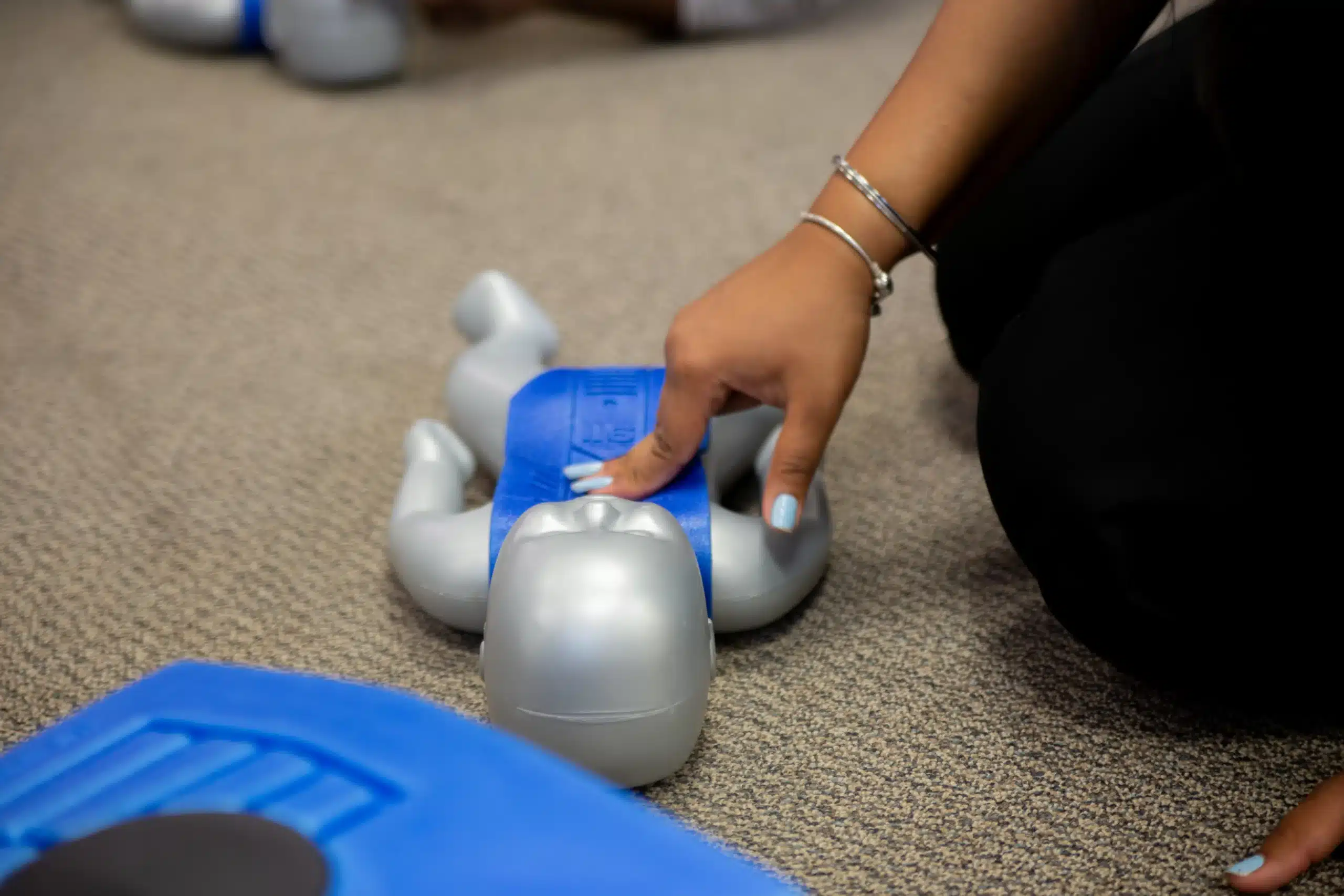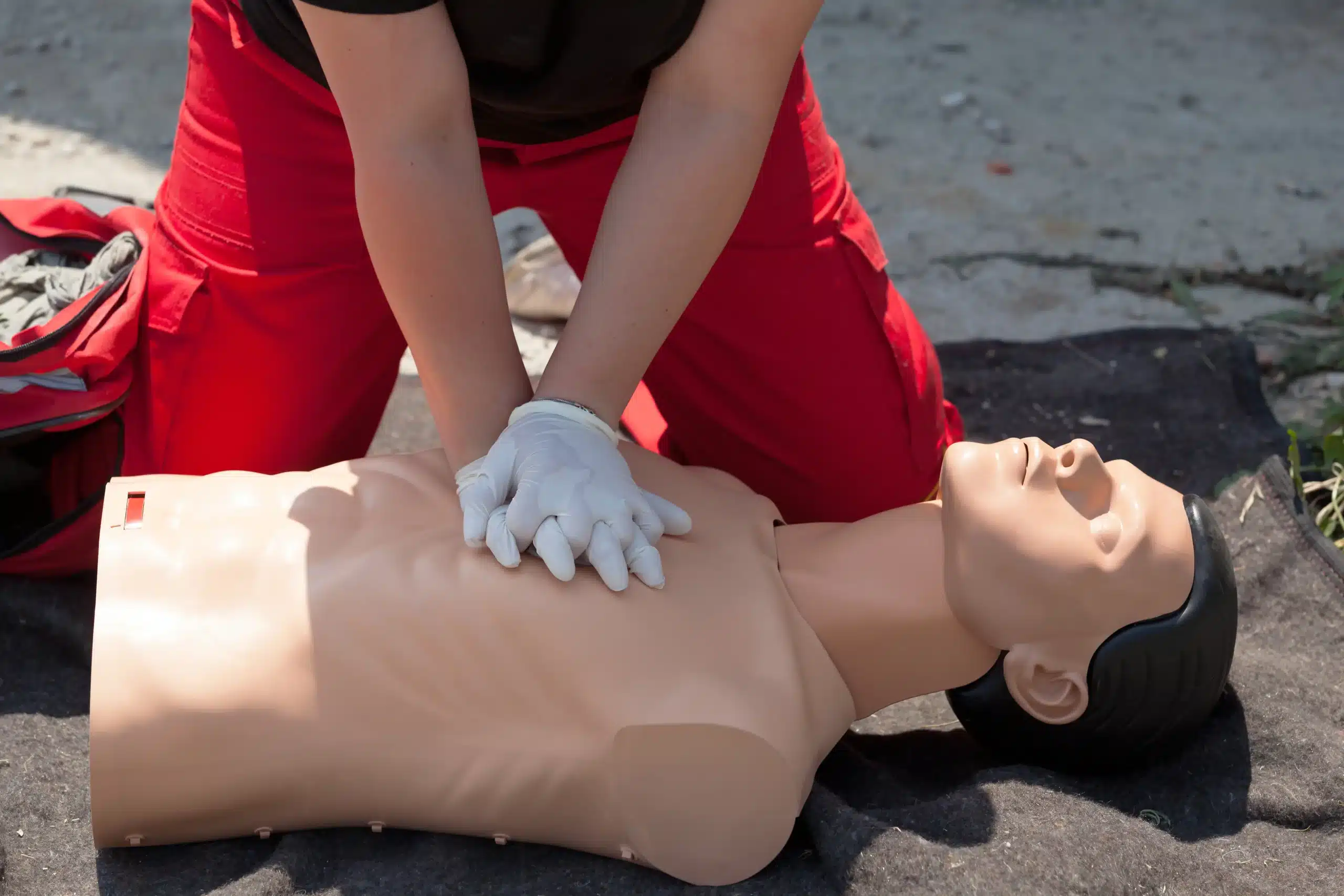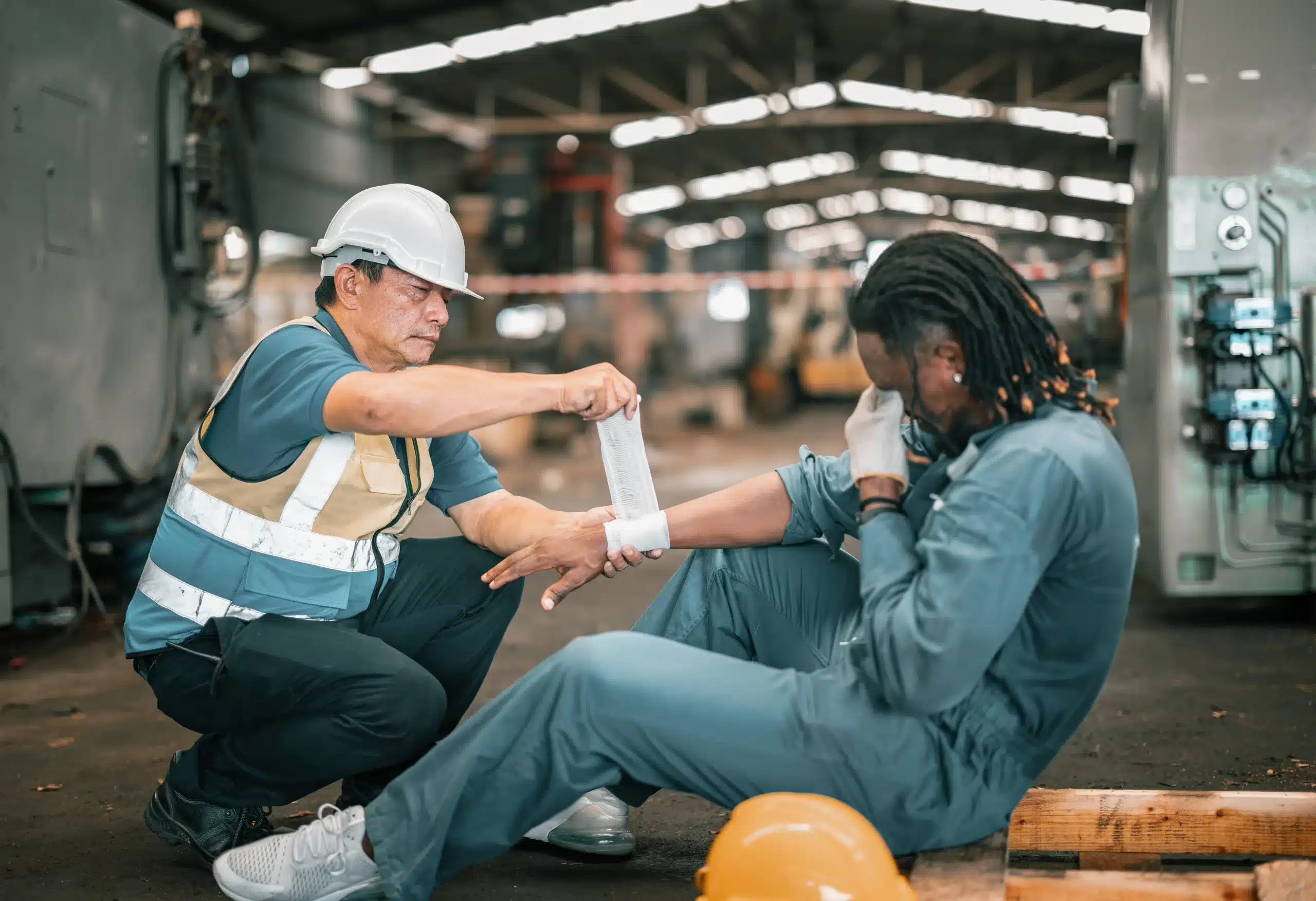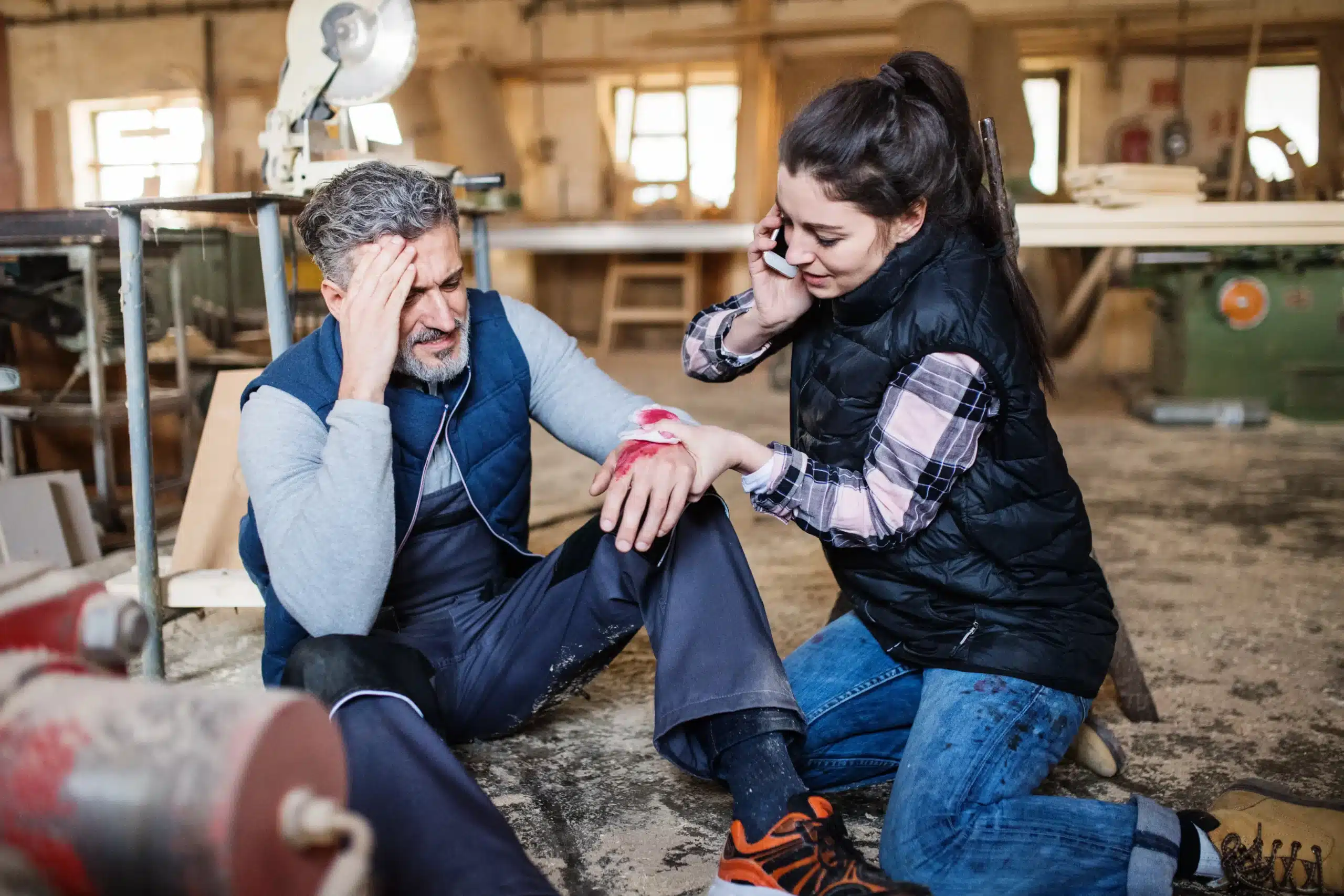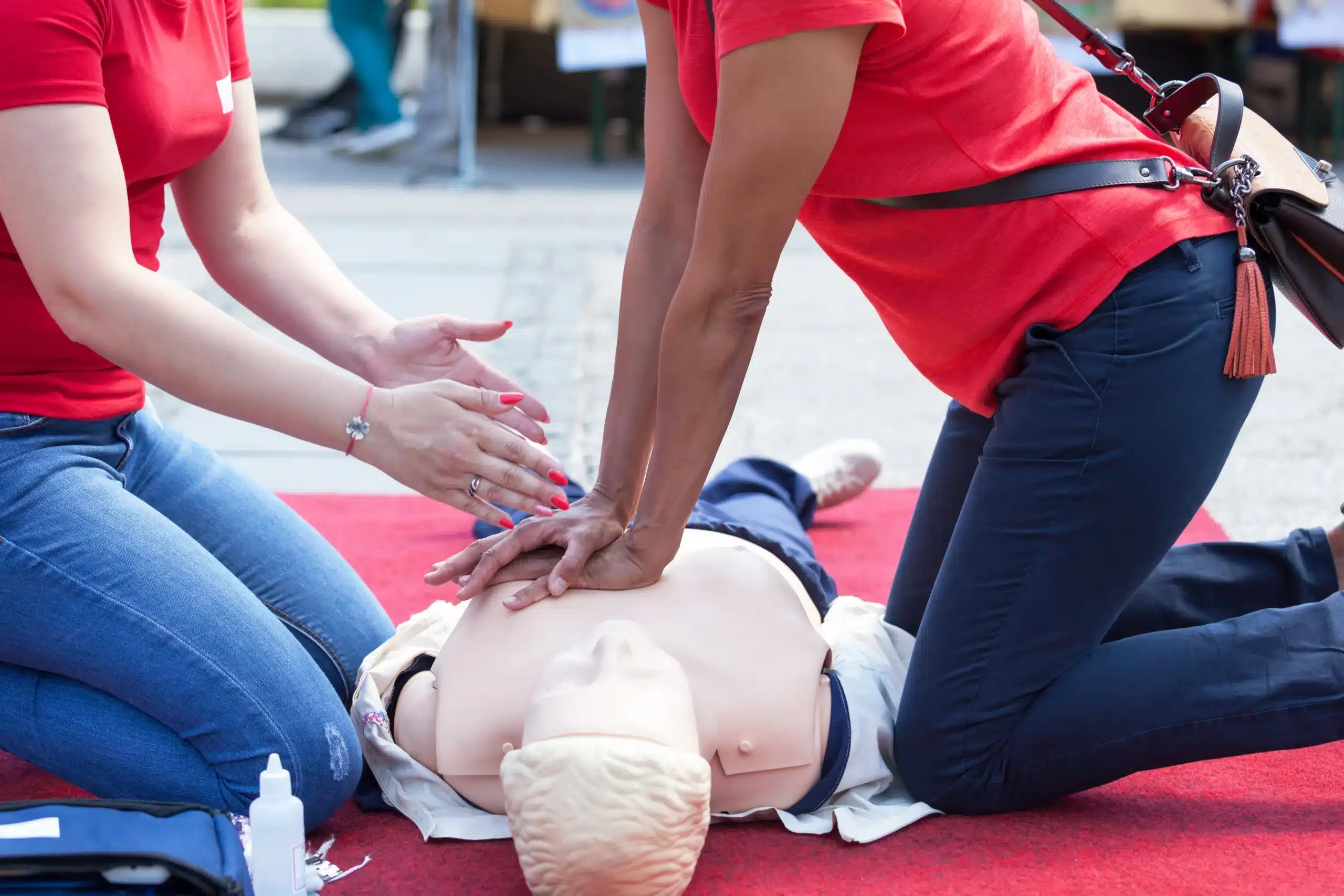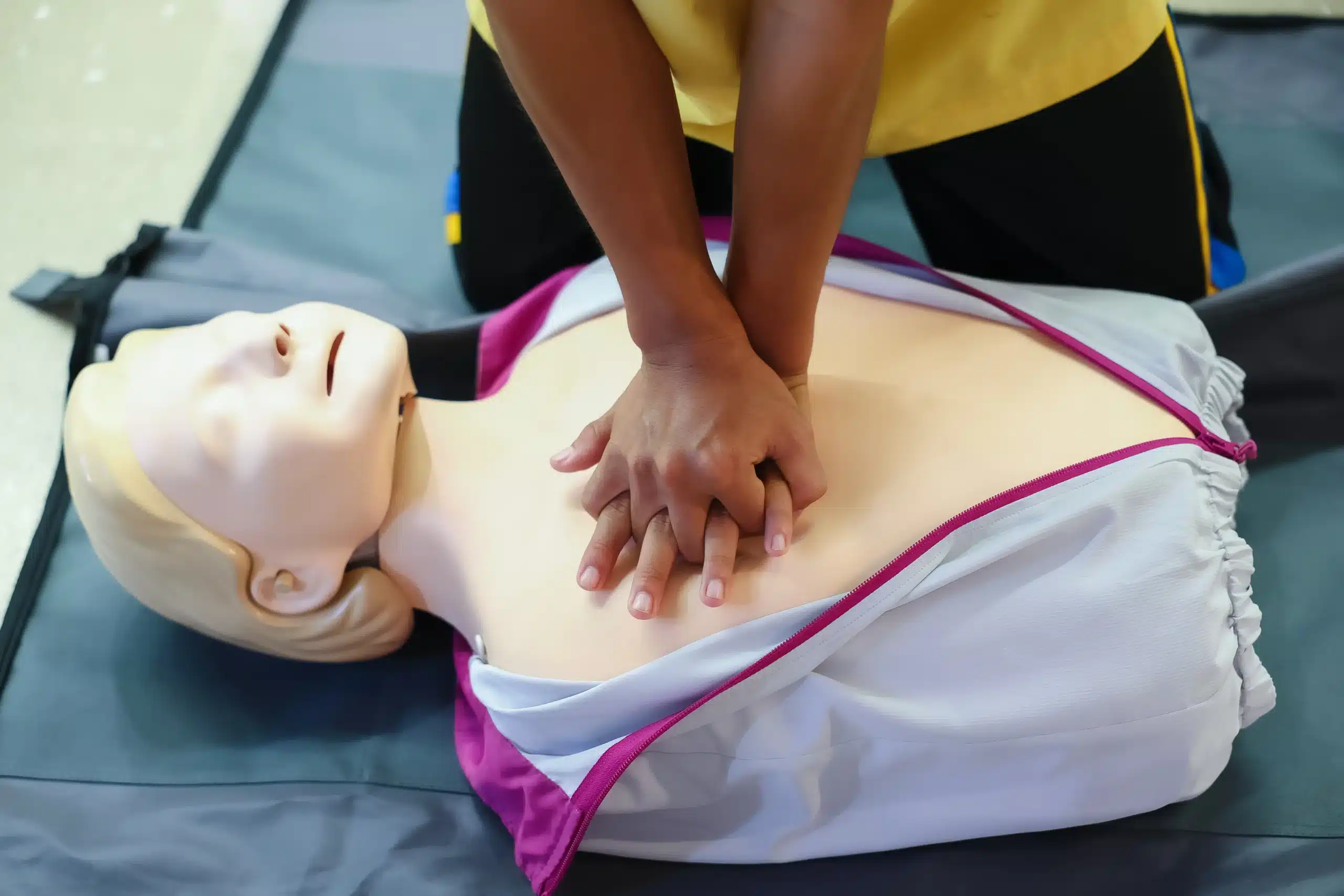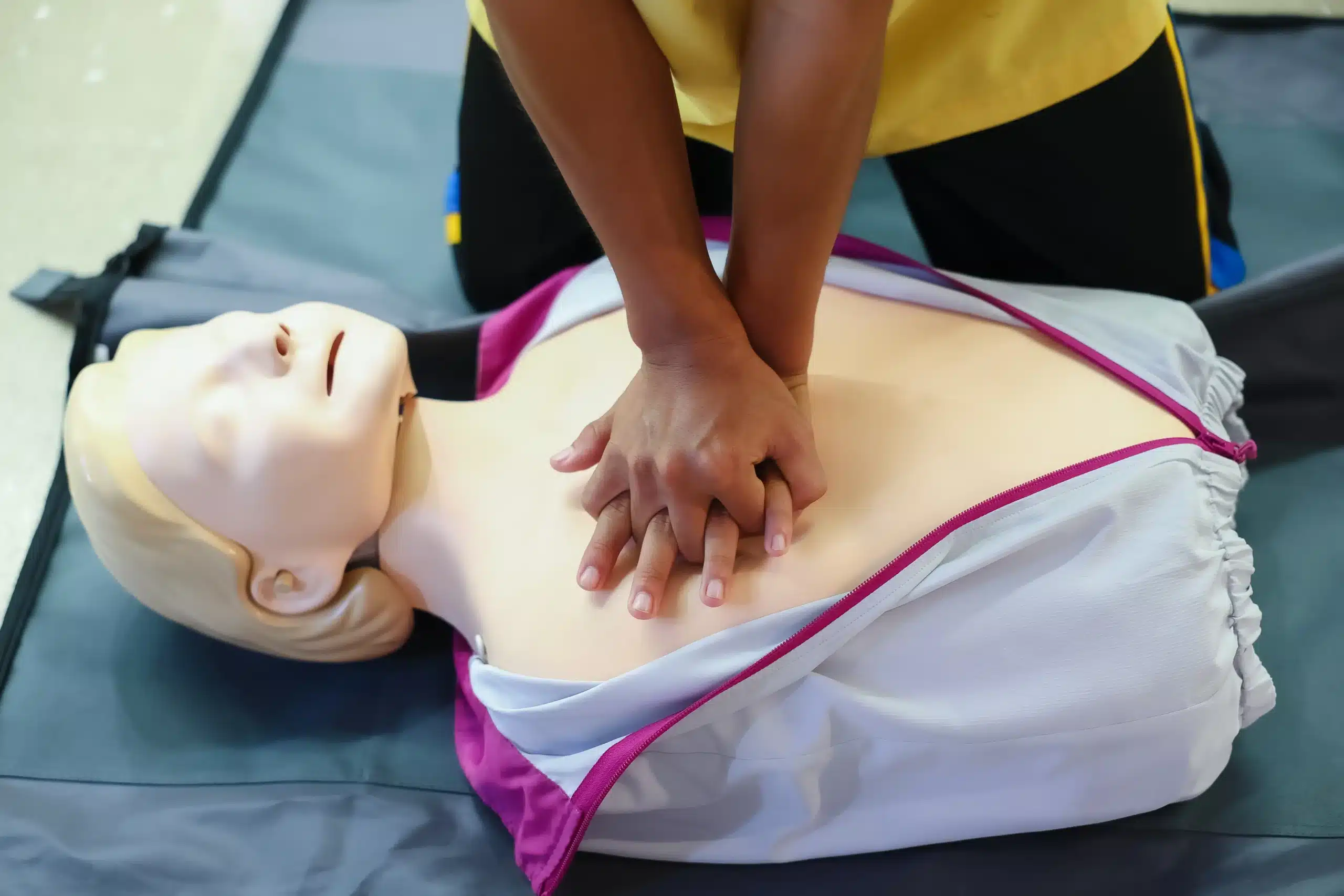Empowering yourself with life-saving skills is one of the most valuable things you can do, both for yourself and your community. CPR certification equips you to respond confidently during medical emergencies, potentially making a critical difference in someone’s life. This guide is your go-to resource for CPR courses in San Jose. We’ll cover everything from understanding the different types of CPR certifications available to navigating the process of finding the right course for your needs. We’ll also discuss leading CPR training providers in San Jose, course costs, and what to expect during your training. Let’s explore how you can become a certified lifesaver in San Jose.
Key Takeaways
- CPR training is accessible and adaptable to your needs: Find the right course type and format in San Jose, from basic community CPR to advanced professional certifications.
- Select a trusted provider for high-quality training: Choose a certified training center like Safety Training Seminars, the American Red Cross, or an AHA-certified provider. Consider factors like cost, location, and schedule.
- Maintain your CPR skills for long-term effectiveness: Recertify every two years and regularly review the material to stay sharp and confident in your abilities.
What is CPR? San Jose Course Options
Cardiopulmonary resuscitation (CPR) is a lifesaving technique used when someone’s breathing or heartbeat has stopped. This can happen after a heart attack, drowning, or other medical emergencies. CPR involves chest compressions and rescue breaths that help maintain blood flow and oxygen to the brain and other vital organs. Knowing CPR can dramatically increase someone’s chances of survival during cardiac arrest.
Finding the right CPR certification course in San Jose is easy, with various options available to fit your needs. Safety Training Seminars, an AHA Training Center, offers a range of courses, including BLS, ACLS, PALS, and First Aid. They’re known for excellent customer service and a low price guarantee. For healthcare providers, they also offer the American Heart Association’s RQI program for certification renewals. They even have specialized courses like EMSA Health, Safety, and Lead Poisoning for California childcare providers. The American Red Cross also provides CPR and First Aid classes in San Jose, with both in-person and blended learning formats. You can also find American Heart Association-certified courses at various locations throughout the city, including local hospitals and medical centers.
CPR Course Types
Choosing the right CPR course depends on your individual needs and goals. Whether you’re a concerned parent, a healthcare professional, or simply someone wanting to learn a life-saving skill, there’s a course in San Jose designed for you. Here’s a breakdown of common CPR course types:
Basic CPR
Basic CPR courses teach fundamental skills to respond to cardiac emergencies. These courses are ideal for anyone wanting to learn CPR—community members, teachers, workplace responders, and more. The American Red Cross offers in-person and blended online/in-person CPR and First Aid classes in San Jose. These courses cover essential life-saving techniques and often satisfy OSHA requirements.
BLS for Healthcare Providers
BLS (Basic Life Support) certification builds upon basic CPR. These courses are designed for healthcare professionals, including doctors, nurses, paramedics, and other medical personnel. BLS covers more advanced airway management, high-quality CPR, and effective team dynamics during resuscitation. Several providers offer BLS courses in San Jose, including the Emergency and Health Training Center, which offers American Heart Association-certified courses. Our own BLS course provides the same high-quality training with a focus on excellent customer service and our low-price guarantee.
ACLS & PALS
ACLS (Advanced Cardiovascular Life Support) and PALS (Pediatric Advanced Life Support) are advanced courses for healthcare providers who manage complex cardiovascular emergencies. ACLS focuses on adult patients, while PALS addresses the specific needs of infants and children. These courses cover topics like ECG interpretation, pharmacology, and advanced airway management, building on the skills learned in BLS. The Emergency and Health Training Center is a good resource for these advanced certifications.
Infant & Child CPR
Infant and Child CPR courses teach the specific techniques required to provide CPR to younger patients. These courses are invaluable for parents, grandparents, babysitters, and anyone working with children. The Red Cross offers these specialized courses, teaching participants how to respond to choking and breathing emergencies in infants and children. They also offer helpful resources, including printable guides to refresh your skills.
Top San Jose CPR Providers
Finding the right CPR training provider is an important step. Here’s a look at some popular options in San Jose:
Safety Training Seminars
Safety Training Seminars, an AHA Training Center, has served the San Jose area since 2013. They offer a low price guarantee and focus on excellent customer service. With experienced, highly-rated instructors, they provide courses in BLS, ACLS, PALS, CPR, and First Aid. You can find their BLS course schedule online. Classes cater to various professions, including healthcare, construction, and childcare, as well as the general public. They also offer courses in Spanish and Vietnamese, making their training accessible to a wider audience.
American Red Cross
The American Red Cross is a well-known provider of CPR and First Aid training. Their San Jose courses are OSHA compliant and taught by experts, equipping participants with job-relevant skills. The Red Cross offers both in-person classes and blended learning options (combining online and in-person instruction). Certification is typically valid for two years, and they offer renewal courses.
American Heart Association
Several training centers in San Jose offer American Heart Association-certified courses. These courses, found through the AHA website, cover essential certifications like CPR, BLS, ACLS, PALS, and First Aid. Look for providers emphasizing hands-on training and offering group discounts.
Local Hospitals & Medical Centers
Many local hospitals and medical centers offer BLS programs specifically designed for healthcare professionals. These programs, often found on the hospital’s website, like St. Peter’s Health, provide specialized training for those who have frequent patient contact and require up-to-date skills. Contact your local hospital for more information.
San Jose Fire Department
While the San Jose Fire Department may not directly offer regular CPR certification courses to the public, they are a vital resource for community health and safety. Check their website or contact them directly for potential community programs or resources they may offer. They often partner with organizations to provide CPR training and promote safety awareness.
Course Formats
Choosing the right CPR course format depends on your learning style, schedule, and specific requirements. Let’s explore the most common options available in San Jose:
In-Person Training
In-person CPR training offers hands-on learning and direct interaction with an instructor. This format allows for personalized feedback and real-time correction, ensuring you develop the proper techniques. For those who thrive in a structured classroom setting and appreciate face-to-face instruction, in-person training is an excellent choice. The American Red Cross offers in-person CPR classes in San Jose, taught by certified experts. These courses often include practice scenarios and skills assessments to build your confidence in responding to emergencies. Safety Training Seminars also offers various in-person courses, including our popular BLS course held in the Willow Glen neighborhood.
Online CPR Courses
Online CPR courses offer flexibility and convenience, allowing you to learn at your own pace and on your own schedule. While fully online CPR certifications may be suitable for specific situations or to refresh your knowledge, it’s important to note that organizations like the American Heart Association and the American Red Cross require hands-on training for official certification. Be sure to research the legitimacy of any online-only CPR certification before enrolling. Consider online courses a valuable supplement to in-person training, rather than a replacement.
Blended Learning
Blended learning combines the best of both worlds, offering the flexibility of online coursework with the practical application of in-person skills sessions. This format allows you to complete the theoretical portion of the course online, then attend a hands-on session to practice your skills and receive evaluation from an instructor. Blended learning is a popular option for those seeking a balance between convenience and the benefits of in-person instruction. For busy professionals and those with demanding schedules, this format can be particularly helpful.
On-Site Training
On-site training brings the CPR course directly to your workplace or organization. This format is ideal for businesses, schools, or community groups looking to train multiple individuals at once. On-site training offers convenience and cost-effectiveness, eliminating the need for employees or members to travel to a separate training location. Safety Training Seminars offers on-site training options for groups of all sizes throughout San Jose, Santa Clara, and Sunnyvale. This option ensures everyone receives consistent training in a familiar environment. Contact us to learn more about our low price guarantee for on-site training.
Course Costs
CPR course fees vary depending on the course type, the training provider, and the format (online, in-person, or blended learning). Understanding these factors will help you budget accordingly.
Typical Fees
In San Jose and surrounding areas like Santa Clara and Sunnyvale, basic CPR and First Aid courses typically start around $75. More advanced courses, such as BLS for Healthcare Providers, usually range from $85 to $125. While cost is a factor, prioritize a reputable provider—Safety Training Seminars offers a low price guarantee. Investing in quality training can make all the difference in a real-life emergency. Check our BLS course schedule for upcoming classes in San Jose (Willow Glen).
Discounts & Financial Aid
Many training centers offer discounts. For example, Safety Training Seminars offers discounts for groups. Contact them directly to learn more about their current offers. It’s always worth checking with your chosen provider for potential savings.
Additional Expenses
Beyond the course fee, consider potential additional costs. These might include study materials, certification fees, or equipment (like manikins and AED trainers) if you plan to become a CPR instructor. Instructor courses can range from $1,300 to $5,100, covering training, certification, and equipment. For instructors, ongoing expenses include recertification fees and liability insurance. Planning for these expenses upfront will help you avoid surprises. If you’re a childcare provider in California, check out our course on EMSA Health, Safety, and Lead Poisoning for relevant safety training.
Certification
How Long is Certification Valid?
CPR certification is typically valid for two years. This standard timeframe, followed by organizations like the American Heart Association, ensures that rescuers stay up-to-date on the latest CPR techniques and guidelines. Knowing that techniques can evolve, maintaining a current certification is essential for providing effective and safe care. At Safety Training Seminars, our certifications align with these standards, giving you confidence in your training.
Renew Your Certification
Before your certification lapses, consider signing up for a renewal course. These courses offer a streamlined way to refresh your skills and knowledge, making recertification easier than starting from scratch. Check with your original training provider or explore options like those offered by the Red Cross in San Jose. You can easily find upcoming CPR renewal courses in San Jose and nearby cities through our website.
Maintain Your Skills
Staying sharp on your CPR skills between renewals is crucial. Regularly reviewing the material and practicing the techniques can build your confidence and effectiveness in a real emergency. Resources like the printable first aid guides from the Red Cross can help you keep your skills fresh. Consistent practice ensures you’re always ready to respond. Consider joining a CPR refresher course or practicing with a friend to maintain your skills.
Prepare for Your CPR Course
Getting ready for your CPR class can make a big difference in how much you get out of it. Knowing what to expect, understanding common misconceptions, and using a few learning tips can set you up for success. At Safety Training Seminars, we want you to feel confident and prepared, so let’s cover some key points.
What to Expect
CPR and First Aid classes typically involve a combination of learning the theory and practicing the skills hands-on. Expect to cover key concepts and then put them into action using manikins. This approach helps you build muscle memory and get comfortable performing CPR in realistic scenarios. You’ll also learn how to recognize the signs of a medical emergency and how to respond effectively. The certification process usually includes a written exam and a practical skills test, so you can demonstrate your understanding and proficiency. Our BLS courses in San Jose follow the American Heart Association guidelines.
CPR Misconceptions
There are a few common misconceptions about CPR that are important to address. One frequent myth is that CPR alone can restart a stopped heart. While CPR is crucial for maintaining blood flow and oxygen to the brain and other vital organs, it’s often the defibrillation and advanced medical care that ultimately restore a normal heart rhythm. Check out our page on what RQI is to learn more about high-quality CPR. Another misconception revolves around the fear of doing CPR incorrectly or causing further injury. Many people hesitate to learn CPR because they’re worried about making mistakes, but even imperfect CPR is better than no CPR at all. We also offer courses on health, safety, and lead poisoning for childcare providers in California.
Learning Tips
A little preparation goes a long way. Before your CPR training, take some time to familiarize yourself with the basic concepts. This will help you focus during the class and absorb the information more effectively. Preparing in advance allows you to get the most from the course. During the class, actively participate, ask questions, and don’t be afraid to practice the techniques multiple times. The more you practice, the more confident you’ll become. After the class, review the materials regularly to reinforce what you’ve learned. Review our low price guarantee for CPR training. Remember, learning CPR is an empowering skill that can help you save lives. We offer a variety of CPR courses in San Jose to fit your needs and schedule. Learn more about our BLS course.
Related Articles
- CPR Certification San Jose: Your Complete Guide – San Jose CPR Classes
- CPR Classes in San Jose: Your Complete Guide – San Jose CPR Classes
- CPR Training in Sunnyvale: Your Certification Guide – San Jose CPR Classes
- Free CPR Classes in San Jose, CA – San Jose CPR Classes
- CPR Training Center in San Jose | BLS, ACLS, PALS Classes
Frequently Asked Questions
What’s the difference between Basic CPR and BLS for Healthcare Providers?
Basic CPR teaches the essentials for anyone wanting to learn CPR, while BLS builds upon those skills with techniques specifically for healthcare professionals. BLS covers more advanced airway management, high-quality CPR, and team dynamics during resuscitation. It’s designed for medical personnel like doctors, nurses, and paramedics.
How do I choose the right CPR course in San Jose?
Think about your specific needs. If you’re a parent or caregiver, an Infant and Child CPR course might be best. Healthcare providers typically need BLS, ACLS, or PALS. If you’re unsure, a Basic CPR and First Aid course is a great starting point. Consider factors like course format (in-person, blended, or online), location, and cost. Safety Training Seminars offers a low price guarantee, so you can find quality training that fits your budget.
Are online-only CPR courses enough to get certified?
While online CPR courses offer flexibility and convenience, they typically don’t meet the requirements for official certification from organizations like the American Heart Association or Red Cross. These organizations require hands-on skills assessment and training. Online courses can be a good way to refresh your knowledge, but they shouldn’t replace in-person training.
How much do CPR courses cost in San Jose?
CPR course fees in San Jose vary, but generally start around $75 for basic CPR and First Aid. BLS for Healthcare Providers usually ranges from $85 to $125. ACLS and PALS courses are typically more expensive. Look for providers offering discounts, like Safety Training Seminars, which offers group discounts and a low price guarantee.
How can I keep my CPR skills current after getting certified?
CPR certification is usually valid for two years. Before it expires, sign up for a renewal course to refresh your knowledge and skills. Between renewals, regularly review the course materials and practice the techniques. Even practicing with a friend can help you stay sharp and build your confidence.


